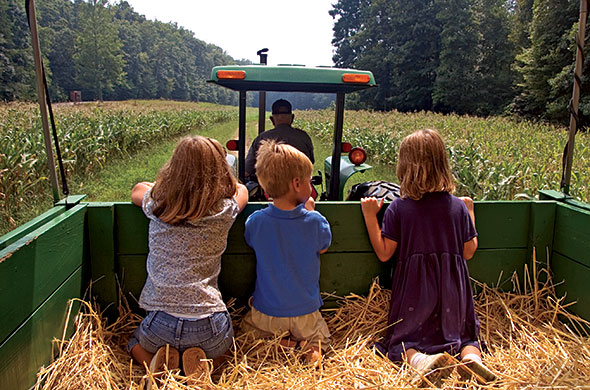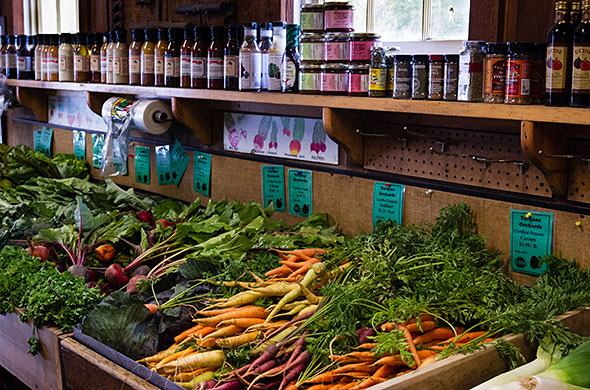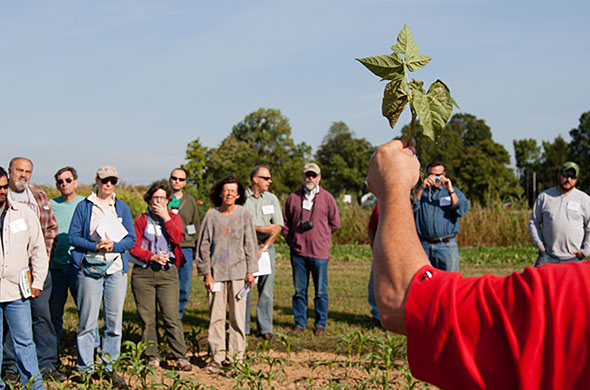
Sustainable agriculture is an integrated system of plant and animal production practices that have a site-specific application and will over the long term:
- Satisfy human food and fiber needs.
- Enhance environmental quality and the natural resource base upon which the agricultural economy depends.
- Make the most efficient use of nonrenewable resources and on-farm resources and integrate, where appropriate, natural biological cycles and controls.
- Sustain the economic viability of farm operations.
- Enhance the quality of life for farmers and society as a whole.
The basic goals of sustainable agriculture are environmental health, economic profitability, and social equity (sometimes referred to as the “three legs” of the sustainability stool).
We feel that there is a special niche for agritourism that focuses on the sustainable aspects of farms. The inclusion of sustainable farming practices on direct market farms not only improves the sustainability of the farm, but also allows the general public to learn and experience first-hand what these practices look like. We also feel that this will attract a broader audience to agritourism-based farms and improve the overall profitability of the operation.
There are many ways for farms to become more sustainable and reduce their environmental footprint. Some of these practices are easy to implement and very cost effective, such as the use of summer and winter cover crops (See information from SARE, and the Northeast Cover Crops Council), drip or micro irrigation, on-farm renewable energy, and crop rotations. Many farms have already implemented these practices and are seeing long term benefits from their use. Yet, the general public is not aware of the farmer's efforts to improve our environment and make agriculture more sustainable, which is why the Sustainable Agriculture focus at the EcoComplex is so important in our outreach efforts.
For More Information
Please contact David Specca at 609-360-0107


